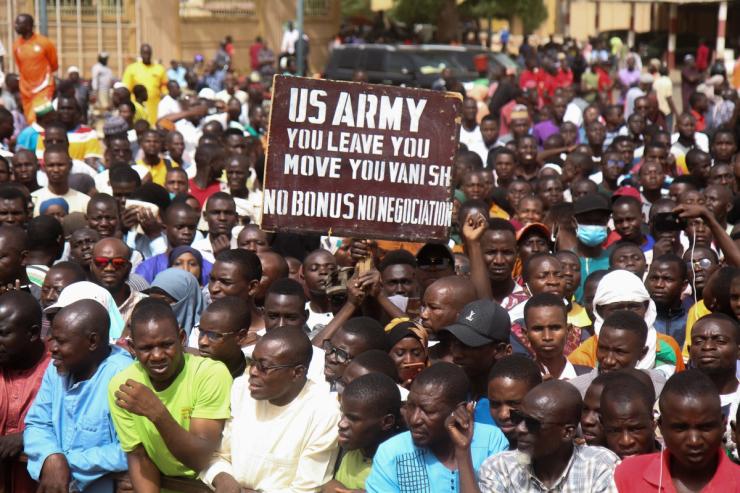The News
The U.S. will begin plans to withdraw its troops stationed in Niger, Biden administration officials said Friday, a month after Niger’s military junta denounced the U.S. presence in the country as “illegal.”
A Department of Defense spokesperson confirmed Monday “the beginning of discussions between the U.S. and Niger for the orderly withdrawal of U.S. forces from the country,” but declined to say whether all 1,100 U.S. military personnel are set to depart.
Niger has been an important military foothold for U.S. counterterrorism operations in the Sahel, where jihadist groups such as the Islamic State have been on the rise in recent years.
Niger’s relations with Washington have been tense since the military junta overthrew the country’s democratically elected president last summer. Following the coup, Niger’s leaders have turned away from the U.S., fostering close ties with Moscow instead. In the weeks before U.S. troops agreed to pull out, dozens of Russian military instructors arrived in Niger, bringing state-of-the-art military equipment, the BBC reported.
SIGNALS
Western influence dwindles in the Sahel
The U.S. and French presence has rapidly eroded across the Sahel with countries like Mali and Burkina Faso turning to Russia. Chad last week threatened to cancel the agreement under which U.S. forces are allowed to operate in the country, CNN reported. In Burkina Faso, three French diplomats were recently expelled, and four French officials have been imprisoned or under house arrest since December, France 24 reported. Russia has courted Burkina Faso over the last months, providing 25,000 metric tons of wheat, an agreement to build a nuclear power plant, and a personal security detail for the military junta’s leader, according to Africa Defense Forum. The country has become a “laboratory” for Russian presence in the Sahel, an expert in Russian influence campaigns told Al Jazeera.
The Islamic State is on the rise in Africa
The withdrawal of Western forces from countries across the Sahel have created a security vacuum that has allowed the Islamic State to thrive. The terrorist group has seized parts of Mali, Somalia, and Mozambique, and is also on the rise in Niger and Burkina Faso. The Islamic State has become “more active in the Sahel” than in Iraq and Syria, an expert told The Washington Post. While some men are drawn to the jihadist group for ideological reasons, the Islamic State can also offer an economic lifeline in countries with chronically high unemployment, the Financial Times reported. “If you give someone [with no prospects of a job] $50 a week, a motorcycle and a Kalashnikov, that’s a pretty good deal,” a French security official told the FT.



